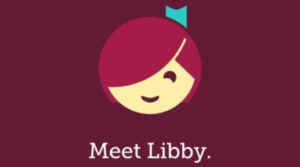E-books are contested in the writing world like few other subjects have been. While book lovers the world over have decried the use of e-books and taken solace in the fact that surely, they won’t stick around, e-books have proven that they take up a valid space when it comes to writing and publishing.

While precursors to the traditional e-reader were invented throughout the 20th century, e-readers as we know them today started to take off in the 1990s. In the 2000s, big-name companies like Sony, Amazon and Barnes & Noble began making their own e-readers, and the e-book trend was launched into mainstream society.
With mainstream emergence came controversy. The Internet is full of articles like “Why I Hate Reading Ebooks,” ”Hating eBooks, Loving Life” and more. There are hundreds of reasons why people believe e-books are inferior to physical books, ranging from legitimate technical complaints about battery life and screen brightness to more abstract grievances, such as a Kindle not being as satisfying as a paperback when it comes to the reading experience.

Whatever truth these complaints hold, there are aspects of e-books that are incredibly valuable. The amount of discounted and free books available to download is staggering. Project Gutenberg, an online database of e-books, contains over 58,000 e-books available for free to the public. The majority of these are public domain books, but for anyone looking to read Pride and Prejudice or Dracula for free, it’s yours in a few clicks.
The Libby app from OverDrive is a great way for readers with a library card to get access to free e-books and audiobooks. Like, Project Gutenberg, access to Libby doesn’t cost anything. All you need is the information on your library card. I’ve been using Libby this month, and as someone who doesn’t prefer e-books, I was impressed by it. The layout is clean and easy to navigate, and the partnership with public libraries across the country means I have access to new releases and best sellers on my phone.

E-books are here to stay for another important reason: self-publishing. Services offered by Amazon and others make it possible to publish your e-book for little to no cost. This is a good way to get your writing out there and make some money. Because you get to bypass the process of getting an agent to get your work published, it’s a tempting path for many new writers. While it comes with its own complex set of pros and cons, e-book publishing stands on its own and has its fair share of fans.
Unfortunately for those who claimed e-books were just a passing fad, it doesn’t look like they’ll be going anywhere soon. For the rest of us, they’re a cheap, always-available option when your local bookstore is sold out and your library has all its copies checked out.
This post is one part of a blog written for Dr. Philip Patterson’s Feature Writing class. This is a series-style blog focusing on innovations in the writing industry, so each post will discuss technology which has helped authors succeed and shape the future of the writing industry, as well as new writing markets, such as e-books and online literary journals.











Be First to Comment